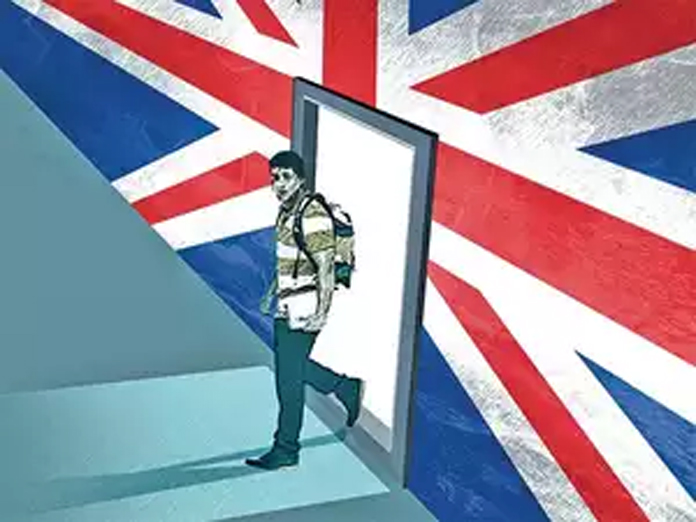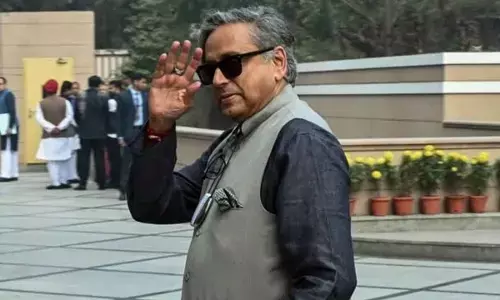Should India be worried about Brexit?

The clock is ticking Britain is set to leave the European Union on March 29, less than two months from now It will crash out without a deal if the two sides fail to reach a fresh agreement following a new vote in the British parliament earlier this week
The clock is ticking. Britain is set to leave the European Union on March 29, less than two months from now. It will crash out without a deal if the two sides fail to reach a fresh agreement following a new vote in the British parliament earlier this week. A no deal Brexit, which is now more likely than ever, will have catastrophic consequences for the British economy as many business leaders have warned. It will also hurt the European Union particularly its largest economy, Germany, which has a significant market for its products in Britain.
India is closely watching what is increasingly becoming a messy divorce between the UK and the EU. Many Indian companies which have invested heavily in Britain over the past few years are worried. The UK has been seen by Indian firms as a gateway to the European Union. A common market has so far ensured these companies barrier-free access to the EU countries.
There are more than 800 Indian companies in the UK which employ over 110,000 people. More than half of them work in just five companies from the Tata group, one of the largest foreign investors in Britain. A no-deal Brexit will directly hit these companies forcing thousands out of jobs.
In the past few years, many Indian companies have flourished in Britain like Rolta, Bharti Airtel and Aegis Outsourcing. These firms operating in the UK have up to 13 per cent exposure to revenues earned in the British currency, although from EU the number is as high as 30 per cent. The pharma sector is another area where Indian businesses have a lot of exposure to the UK. Brexit is obviously bad news for them. Their revenues will be hit because of the likely weakening of the pound sterling.
Many Indians are also worried of the socio-political consequences of Brexit. A sizable number of Indians and other South Asians voted in favour of Brexit because politicians from the Leave side promised them easy migration of talent from the former Commonwealth countries. For example, Indian restaurant owners were promised they would be able to bring in more chefs after the UK's withdrawal from the EU.
But, in fact, die-hard supporters of Brexit are right-wing groups who hate any immigration. If the British economy suffers and more people are thrown out of jobs, as is widely predicted, such groups are likely to turn their anger towards non-white people. But not all Indians are worried. Many will see Brexit as an opportunity for India to be able to negotiate a favourable trade deal with Britain. India is seen as a priority for such a deal by British politicians.
India will also see an opportunity in finalising a trade deal with the European Union. India-EU Free Trade Agreement (FTA) talks were suspended in 2013 after the two sides failed to reach a deal even after six years of talks. Since then the two sides have had summit-level discussions but no real progress has been made. Brexit will give the EU an impetus to reopen the FTA talks.
But despite the lack of an FTA, trade between the EU and India has been growing steadily and has doubled in the past decade. The EU is India's largest trading partner at 85 billion euros or Rs 8,500 crore in 2017. However, from the EU's perspective, India is only the ninth biggest trading partner, much behind China. So, India has a lot of potential to fill this gap after Brexit.
European leaders, particularly from Germany and France, have been wooing the Indian government in recent months. Unlike Britain, their countries have no colonial baggage with India. In the past few years, tourism has also grown rapidly between India and countries in the EU's Schengen. Britain has been losing many Indian tourists because of its stricter visa regime.
It would of course, be more in India's interest if there is an orderly exit of Britain from the EU, an exit with an agreement to explore a trade agreement. That would help Indian companies to continue to benefit from a common market. Prime Minister Narendra Modi has publicly spoken in favour of Britain staying with the European Union. That is now unlikely despite growing calls for a second referendum.
This is because of powerful Brexiteers in the ruling Conservative Party. The EU leaders have already made it clear they are not prepared to reopen negotiations on a deal they have already agreed to. So, India needs to prepare for a probable no-deal Brexit. (The writer is a senior journalist based in London)
By Naresh Kaushik










